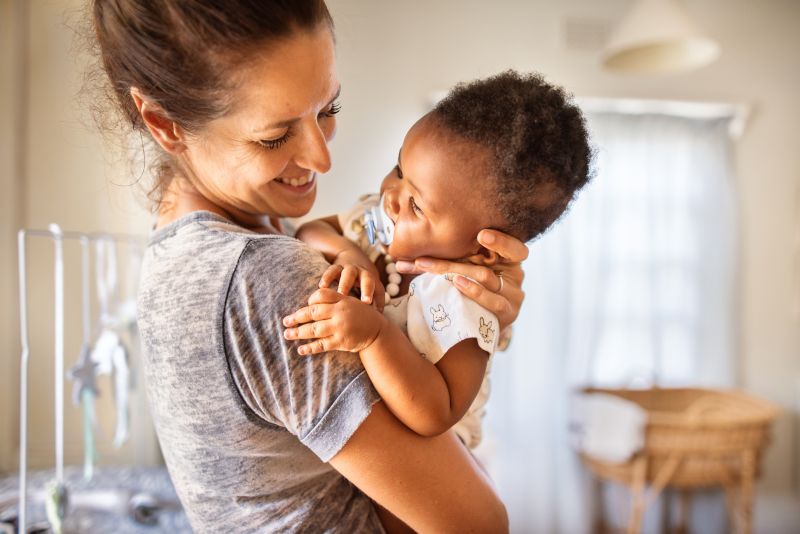What Is Adoption?
Explaining the Basics

Adoption is a life-changing process that makes families and creates better futures.
There are several ways adoption can happen, and many professionals are involved. Because adoption is so important, it can also be very complex.
That’s why we created this guide to answer your basic question: What is adoption?
If you want to get free adoption information now, then you can always fill out our online contact form at any time. But, we have also spent some time making this detailed article that can answer that lingering question: What is adoption? Continue reading to learn all that you need to know.
What Is Adoption?
In simple terms, adoption is the process of a parent or parents assuming the legal rights of a child who is not biologically theirs. Adoption is also maintained through legal contracts to ensure that it’s a permanent decision. As a result of the adoption process, an adopted child has both a birth family and an adoptive family.
But, it’s worth noting that adoption goes much deeper than that. It can seem like a somewhat simple concept on the surface, but it is often pretty complex. The best way to break adoption down is by outlining the three types of adoption that people choose from: foster care adoption, domestic infant adoption and international adoption.
What Is Foster Care Adoption?
As its name implies, foster care adoption occurs when someone adopts a child from the foster system and raises them. Still, it is worth mentioning that adoption is a secondary goal within the foster care system. Its primary objective is to reunite children with their birth families.
Also, if hopeful adoptive parents are interested in adopting an infant or a newborn, they may want to look into domestic infant adoption instead, which we will discuss later in this article. Most children in foster care are older or part of a sibling group, so infant adoption from the foster system is incredibly hard to come by.
What Is Domestic Infant Adoption?
Domestic infant adoption is when someone adopts a baby within the United States. This is a rather broad definition, and that’s because, underneath the larger umbrella of domestic infant adoption, there are three subcategories: open, semi-open and closed. Here’s what you need to know about each of those:
- Open adoption: In an open adoption, the prospective birth mother and hopeful adoptive parents exchange identifying and contact information. This allows the birth mother to stay in touch with their child and the adoptive family for many years to come.
- Semi-open adoption: Most adoptions today have at least some degree of openness, so many people decide to pursue semi-open adoption. This is when the adoption professional mediates all contact between the two parties to maintain some privacy.
- Closed adoption: A few decades ago, closed adoption was the standard, but its open counterpart has since taken up the helm. In a closed adoption, everything is completely anonymous. No identifying or contact information between the two parties is shared whatsoever.
When it comes to domestic infant adoption, people can either choose an independent or private adoption. An independent adoption is when the two parties forgo help from an adoption agency. A private adoption is when the two parties work with an adoption professional to help them complete the adoption journey from start to finish. It is highly recommended for people to choose private adoption to ensure that all their needs are met.
What Is International Adoption?
You may have guessed it, but international adoption is when someone adopts a child from another country. Although adoption on its own can be complex, international adoption can be even more complicated. This is because the adoptive family will need to navigate the adoption laws of two countries at once.
On top of this, people interested in international adoption have to consider a potential language barrier as well as cultural differences. If you are a hopeful adoptive parent considering this option, then be sure to think about how you’ll respect your child’s ethnicity and heritage while also educating them about it.
***
Adoption can be a confusing topic, so we understand if you need something explained. If you have any more questions about adoption, then we would be more than happy to answer them. That’s why you can fill out our online contact form whenever you need us.
Disclaimer
Information available through these links is the sole property of the companies and organizations listed therein. American Adoptions provides this information as a courtesy and is in no way responsible for its content or accuracy.
